We are our choices
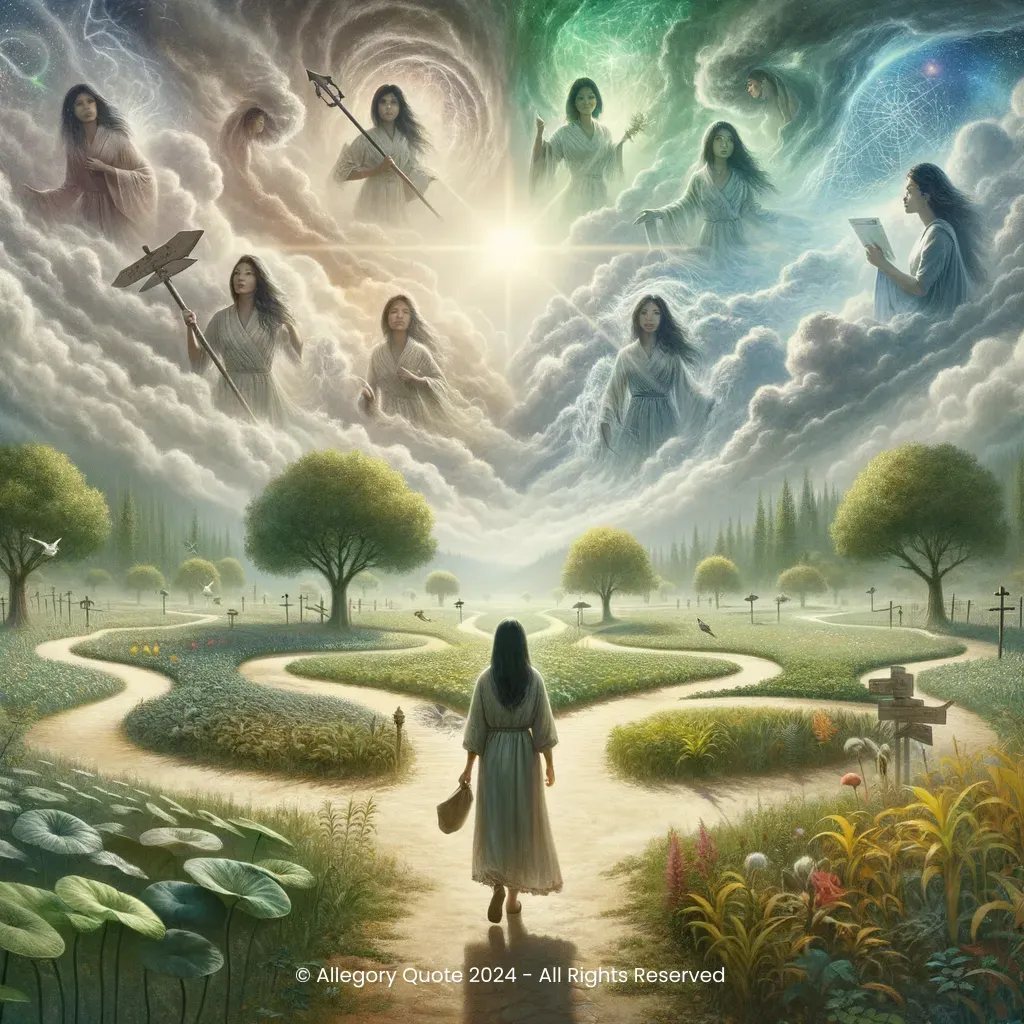
0
0
0
0
- Meaning
- At its core, the phrase "We are our choices" encapsulates a fundamental tenet of existentialist philosophy: the idea that human beings are defined not by their inherent nature, social status, or circumstances but by the decisions they make. Sartre's existentialism posits that individuals have the freedom and responsibility to choose their actions, and these choices shape their identity and essence. It emphasizes personal accountability and the belief that, through our choices, we actively create our own path and meaning in life.
- Allegory
- The crossroad symbolizes the multitude of choices we encounter in life. The varying skies above represent the diverse outcomes and directions these choices can lead to. The translucent apparitions of the figure walking different paths symbolize the potential selves one could become, depending on the choices made. The lush, inviting surroundings evoke a sense of hope, growth, and the positive potential that comes with taking responsibility for our decisions. The person's confident, contemplative expression signals empowerment and the reflective nature of making significant life choices.
- Applicability
- The phrase can encourage individuals to take ownership of their lives and the decisions they make, reminding us that our actions define us. Whether facing major life decisions or daily choices, reflecting on this phrase can inspire a sense of empowerment and responsibility. It serves as a reminder that the power to shape our lives, for better or worse, lies within our hands.
- Impact
- The impact of this phrase has been profound in various fields such as philosophy, literature, and psychology. It has sparked discussions about the nature of human existence and the extent of individual freedom and responsibility. This concept is often cited in contexts promoting self-determination and personal growth and in motivational discourses that emphasize the role of personal agency in defining one’s character and destiny.
- Historical Context
- This phrase emerged in the mid-20th century, a period marked by significant existentialist discourse, which was largely influenced by the aftermath of World War II. The era was characterized by widespread questioning of moral and ethical absolutes, with Sartre and other existentialist thinkers exploring the roles of freedom, responsibility, and authenticity as essential components of human existence amidst a changing world order.
- Criticisms
- One criticism of the phrase is that it may oversimplify the complexities of human existence by suggesting that choices alone define us, potentially ignoring factors such as social, economic, and psychological influences that limit individual freedom. Critics argue that it might place undue pressure on individuals by implying that negative outcomes are solely the result of poor choices, without considering external circumstances that impact decision-making.
- Variations
- Variations of this phrase might include interpretations that emphasize different cultural values or prioritize collective decision-making over individual choices. For instance, in collectivist societies, the emphasis might be on how choices are influenced by family and community values, suggesting a more interconnected and less individualistic view of identity and decision-making.
-

The only limit to our realization of tomorrow will be our doubts of today.
-
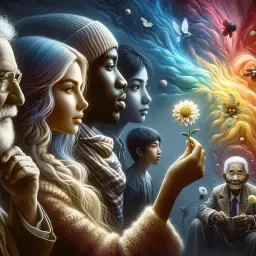
Beauty is in the eye of the beholder.
-
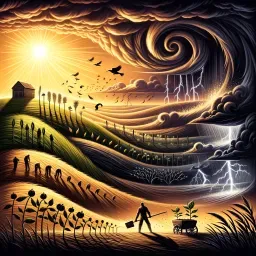
He who sows the wind shall reap the whirlwind.
-
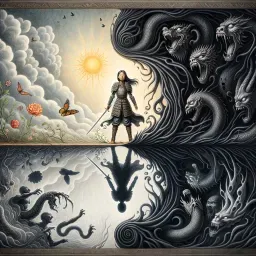
Battle not with monsters, lest ye become a monster, and if you gaze into the abyss, the abyss gazes also into you.
-
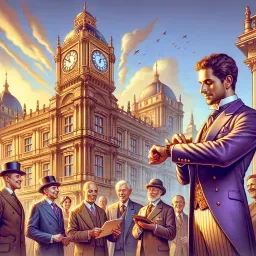
La ponctuality is the politeness of kings.
-
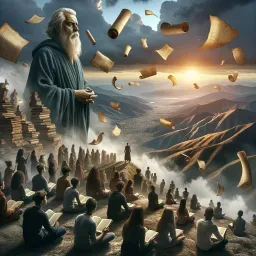
I know that I know nothing.
-

Happiness is not something ready-made. It comes from your own actions.
-
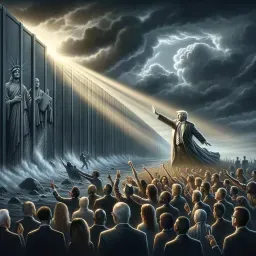
Mr. Gorbachev, tear down this wall!
-
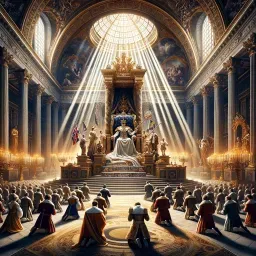
The State is me.
-
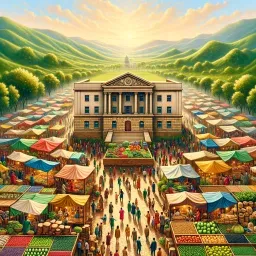
The goal to strive for is a poor government but a rich people.
-

He who dares wins.
-
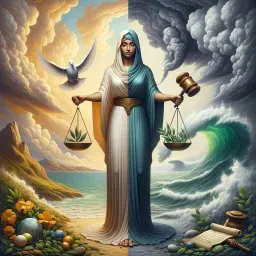
Peace and justice are two sides of the same coin.
No Comments